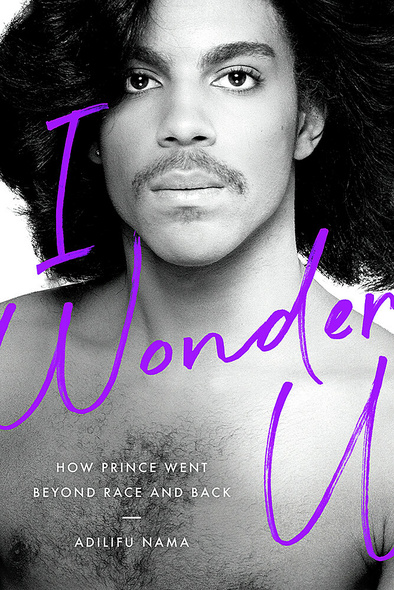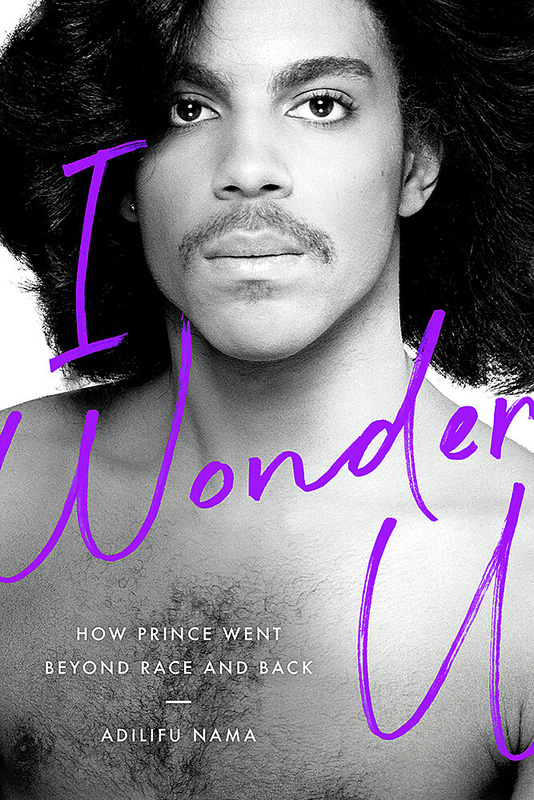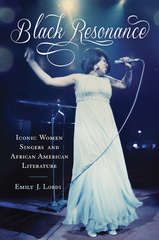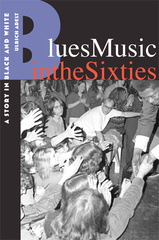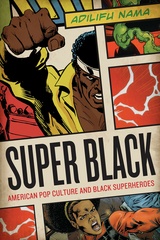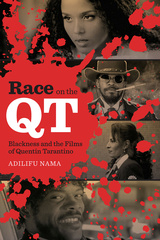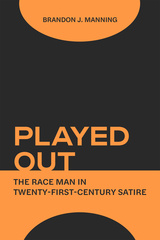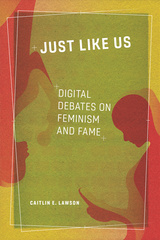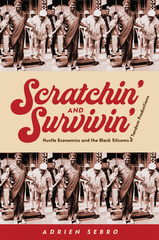Featured in the 2020 Association of University Presses Book, Jacket, and Journal Show
In 1993, Prince infamously changed his name to a unique, unpronounceable symbol. Yet this was only one of a long string of self-reinventions orchestrated by Prince as he refused to be typecast by the music industry’s limiting definitions of masculinity and femininity, of straightness and queerness, of authenticity and artifice, or of black music and white music.
Revealing how he continually subverted cultural expectations, I Wonder U examines the entirety of Prince’s diverse career as a singer, multi-instrumentalist, songwriter, producer, record label mogul, movie star, and director. It shows how, by blending elements of R&B, rock, and new wave into an extremely videogenic package, Prince was able to overcome the color barrier that kept black artists off of MTV. Yet even at his greatest crossover success, he still worked hard to retain his credibility among black music fans. In this way, Adilifu Nama suggests, Prince was able to assert a distinctly black political sensibility while still being perceived as a unique musical genius whose appeal transcended racial boundaries.
In 1993, Prince infamously changed his name to a unique, unpronounceable symbol. Yet this was only one of a long string of self-reinventions orchestrated by Prince as he refused to be typecast by the music industry’s limiting definitions of masculinity and femininity, of straightness and queerness, of authenticity and artifice, or of black music and white music.
Revealing how he continually subverted cultural expectations, I Wonder U examines the entirety of Prince’s diverse career as a singer, multi-instrumentalist, songwriter, producer, record label mogul, movie star, and director. It shows how, by blending elements of R&B, rock, and new wave into an extremely videogenic package, Prince was able to overcome the color barrier that kept black artists off of MTV. Yet even at his greatest crossover success, he still worked hard to retain his credibility among black music fans. In this way, Adilifu Nama suggests, Prince was able to assert a distinctly black political sensibility while still being perceived as a unique musical genius whose appeal transcended racial boundaries.
Adilifu Nama’s work is a sharp, incisive, and fresh take on the life and career of Prince Rogers Nelson. He seamlessly weaves in a critical yet thoughtful analysis of the intersections of race, masculinity, and sexuality while simultaneously chronicling the evolution of Prince’s music. For the Prince fan, it is a must read.
Dr. Nama explores the life of Prince through the lens of racial politics and the American music industry to illuminate the ways that Prince acted as a racial 'shape shifter.' This book will make you think, make you laugh and make you critically reflect on the constant shifting gendered and racial attitudes American society continues to grapple with.
A must for Prince fans and for readers interested in his impact on the music industry, pop culture, and race and gender theory.
A must for cultural studies practitioners, especially those who analyze the work of iconic figures.
ADILIFU NAMA is a professor of African American Studies at Loyola Marymount University in Los Angeles. He has written numerous books about the intersection between African American Studies and pop culture, including Super Black: American Pop Culture and Black Superheroes and Race on the QT: Blackness and the Films of Quentin Tarantino.
Introduction
Notes
Index
- Incognegro
- On the Black Hand Side
- Enfant Terrible
- Cherry Bomb
- Chaos and Crossroads
- Don’t Call it a Comeback…
- Dearly Beloved: An Epitaph
Notes
Index

